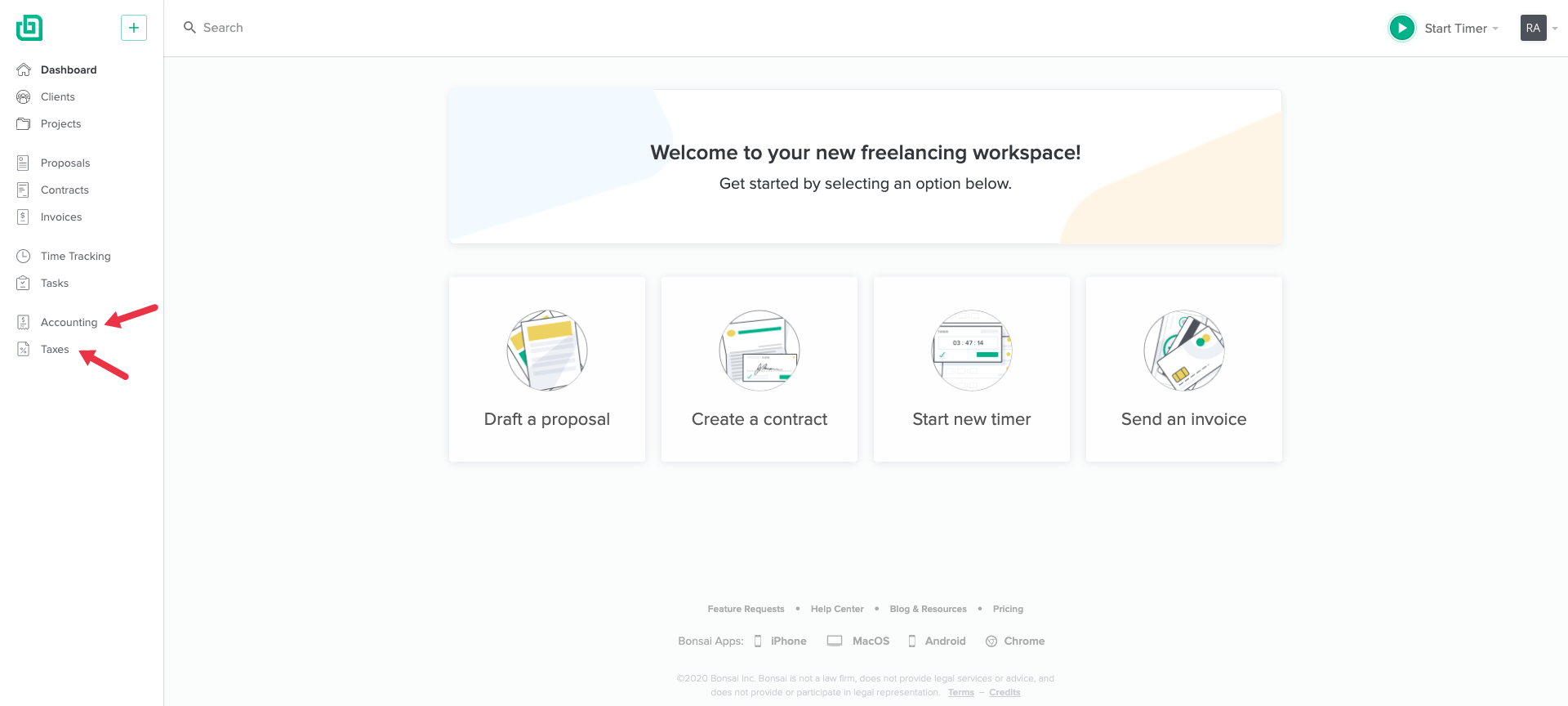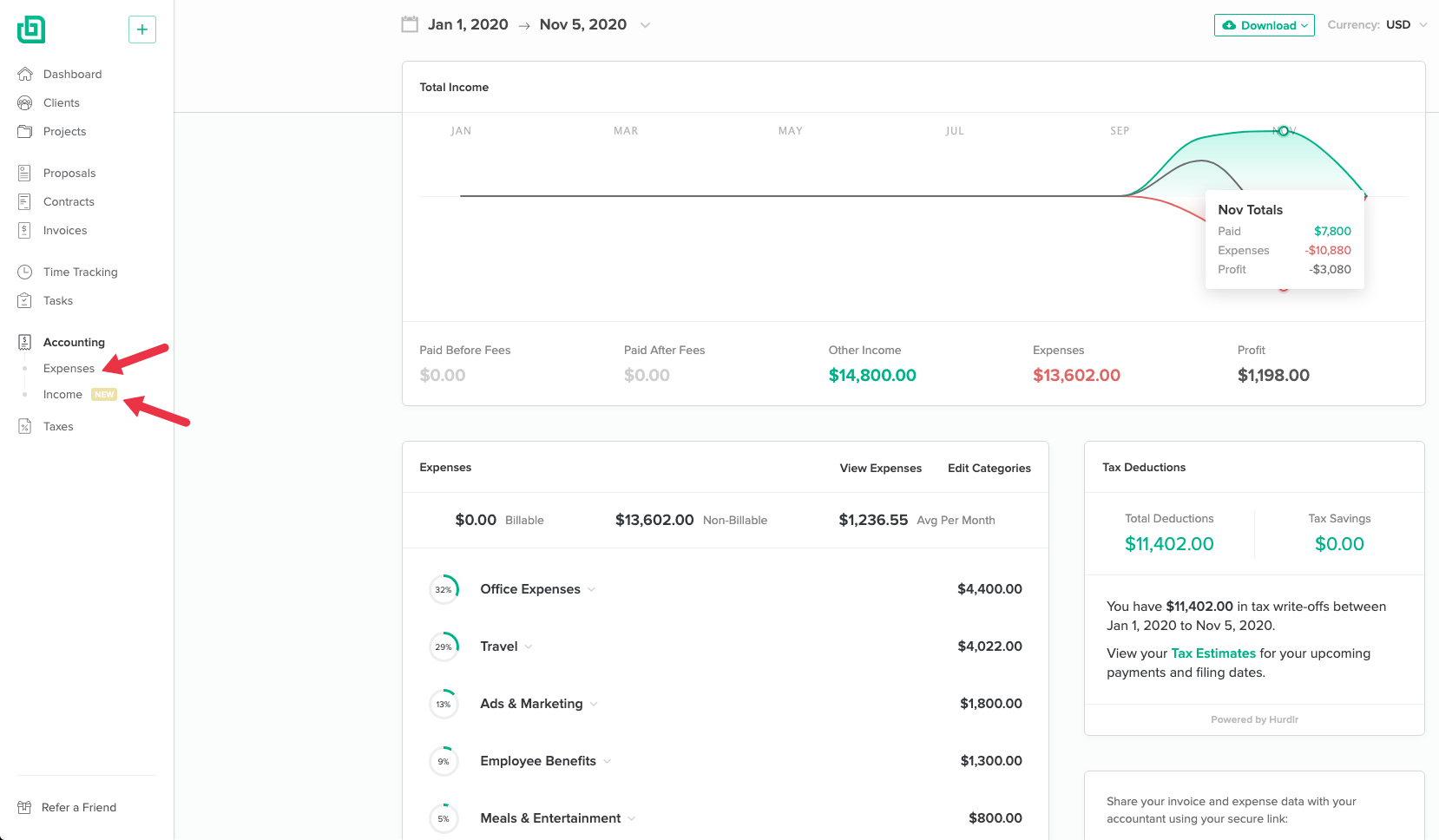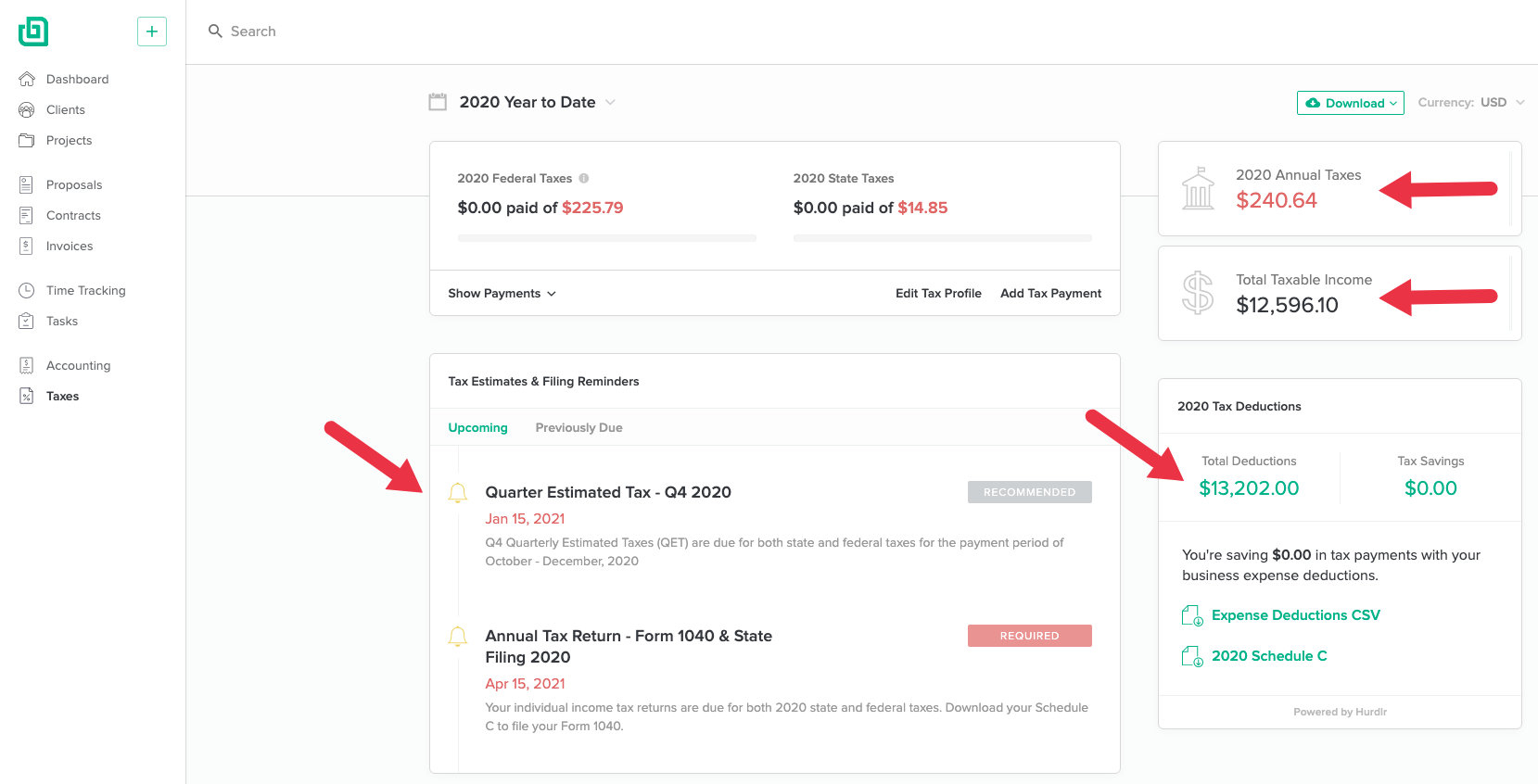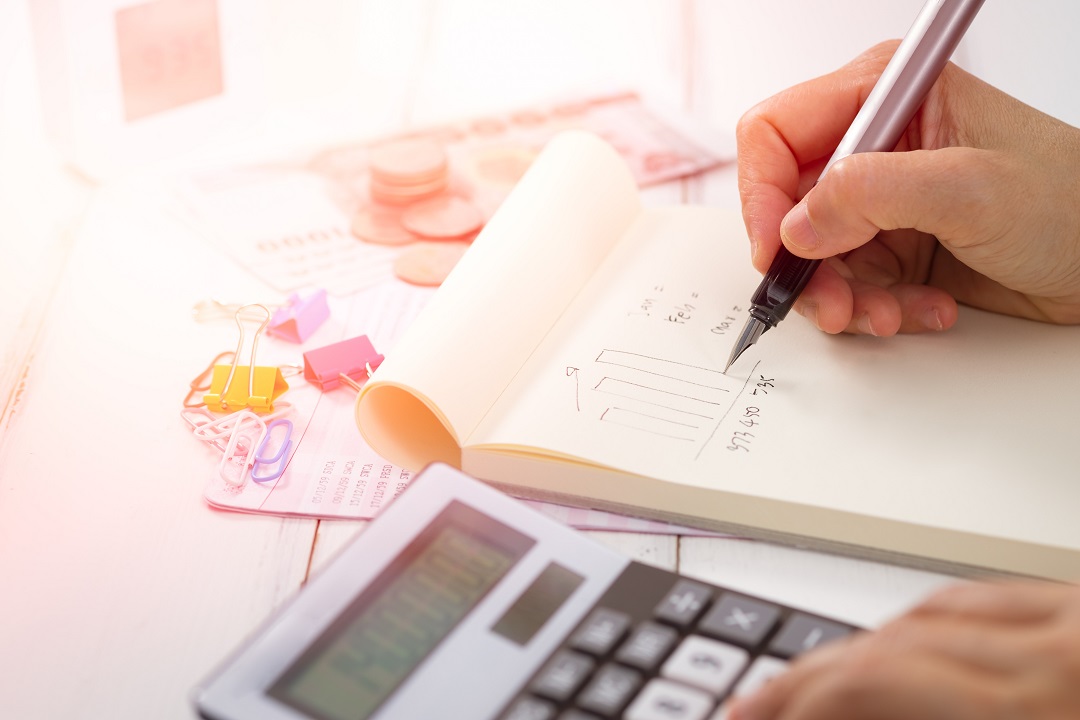Being a freelancer offers a lot of benefits, including freedom from commuting every day, the flexibility to manage your workday, and choosing who you sign agreement templates with or send scope of work templates to.
But like any other profession, there’s one thing that remains inevitable: paying self employment taxes. So if you’ve ever wondered, do freelancers pay taxes? The answer is yes!
How to pay taxes as a freelancer is one of the most important administrative tasks you need to learn. Nothing spoils a great year as a freelancer by finding out you owe more in taxes than you thought.
So it’s important that you know how to do taxes as a freelancer. You don’t have an employer that deducts taxes each paycheck, so you need to ensure you’re handling that responsibility.
Note: If you want to make your freelancer taxes a whole lot easier, try Bonsai Tax. Our software records receipts, tracks deductions, sends reminders for deadlines, estimate quarterly taxes and more. The average user typically saves $5,600 from their tax bill from recorded business expenses. Test drive the software today with a 7-day free trial here.

Let’s look at 5 essentials of knowing how to pay taxes as a freelancer.
1. Be aware of freelance tax information
Don’t think that paying taxes as a freelancer is only for those generating a six-figure income. As soon as your business earns $400 or more in a year, freelance tax rules state that you have to pay income tax and self-employment tax.
As Bonsai's Matt Brown says: “One of the biggest surprises freelancers face comes at tax time. Because your traditional employer withholds federal, state and social security taxes for you, you usually don’t realize just how much goes towards self employment taxes (you can use our 1099 tax calculator to find out how much you'll owe). When you transition into freelancing, it is entirely up to you to pay what you owe. If you do not prepare for tax season, you could end up with a massive bill, with added fines and penalties, in April.”
It’s a good idea to start by setting aside 30 per cent of any money you earn, while you accustom yourself to how to pay for taxes as a freelancer.
That’s because whether you work for yourself or as a contractor, such as a 1099 contractor, freelance tax rules require you to pay as an employee and an employer. Sounds like you’re being double-taxed, which can come as a surprise to some, but it’s one of the freelance tax tips of which you must be aware.
Which brings us to our second tip.
2. Seek help from a tax professional
Particularly when you’re just starting out, spending your hard-earned money to get someone else to help you know how to pay freelance taxes may seem like an extravagance.
It’s not.
An accountant, particularly one who knows freelance tax information, will be worth their weight in gold. The biggest reason is that they will know all the ins and outs of freelance work and taxes.
But it’s also because you’ll have time to do your work, rather than spending all your billable hours learning how to pay taxes as a freelancer.
You should still know tax basics for freelancers, but a quality accountant will be able to help you answer questions such as:
- How much should I save for taxes?
- What if I owe back taxes?
- Are there any taxes that should be added to my freelance invoices?
- What’s the difference in calculations for full-time versus part-time freelancing?
- What are all the possible tax deductions or freelance tax deductions?
- How should I structure my business to take best advantage of freelance work and taxes?
- What can I do to lower future tax bills?
There are plenty of things to consider when it comes to freelance and taxes. And remember, one of the best freelance tax tips is that the professional fees you pay an accountant are tax deductible.
3. Ensure your accountant knows your business
Once you find a qualified tax professional, you need to spend some time with them, first to make sure they know all there is to know about how to pay taxes as a freelancer.
But you also want to be sure they know about your freelance business. If you’re a designer, what are the specific rules for paying taxes as a freelancer in that line of work? Is it different if you’re a writer? Or a developer?
There may not be major differences, but when it comes time to tracking expenses and revenue, there may be some nuances in the tax basics.
Did you know that you can use Bonsai for bookkeeping? Or that Bonsai can help you be prepared for self-employment tax by providing tax estimates, filling date reminders, and identifying your tax write-offs?
Let's see how that works. First, head to your main Bonsai dashboard and have a close look on the left side - we'll be working with the accounting and taxes sections. First click on "Accounting".

Inside the bookkeeping section, you'll see a breakdown of your income and expenses. Both can either be automatically imported from your bank account, or manually added. Work you got paid for via Bonsai will also be registered here.
Make sure this section is properly filled in and click on "Taxes" next.

This is where the magic happens: Bonsai will do all the calculations for you, and we'll provide you with an overview of your tax estimates, a list of self employed tax deductions you can use for the upcoming tax season, and reminders for all the upcoming filling dates.

Simple, right? If you're ready to check out Bonsai and explore all the features, go ahead and sign up for the free trial!
4. Track all your expenses
One of the benefits of paying taxes as a freelancer is in the write offs available to you. Your tax professional will help you sort out the entire list, but it’s important either way for you to itemize and record all your business expenses.
Things to keep track of for the purposes of write-offs include:
- Office expenses
- Office space
- Any kind of hardware and software necessary for the business
- Internet and phone bills
- Membership fees
- Investments such as training to keep your skills sharp
- Legal and professional services (as mentioned, that includes paying the tax professional to help you know how to do taxes as a freelancer)
- Travel expenses
And more.
As a result, you need to keep good records. For instance, if your office space is in your home, you can deduct a portion of household expenses such as utilities, as long as the space is dedicated solely for business activities.
And when it comes to tax time, having those records will make your life easier. You’ll also spend less on professional fees if you’re at least somewhat organized in your record keeping.
Here’s the kicker:
It’s a good idea when it comes to freelance work and taxes to open a dedicated bank account that will make it easy to track business earnings and expenses, especially if you're using tax and accounting software such as Bonsai tax.
5. Pay taxes quarterly
Another key for freelancers is to pay estimated taxes quarterly. That’s because knowing whether or not to make these payments will depend on how much money you make.
For instance, if you expect that you will owe at least $1,000 in taxes, or if you rely on freelance work for all or most of your income, you’ll likely have to make estimated tax payments every quarter.
If you don’t pay enough each quarter, you will still owe at tax time. If you pay too much, you could receive a tax refund.
The estimates will be based on projected income, and you don’t want to make a wild guess. If you don’t pay quarterly, you could be subject to a penalty. Your accountant will be able to provide you with guidance in this regard.
Final thoughts
Administrative tasks are not the reason you became a freelancer, but they are an important part of running your business. That includes how to pay freelance taxes, which isn’t something you can ignore.
Our guide to the keys of knowing how to pay taxes as a freelancer will help ensure you’re paying attention to your responsibilities. That includes knowing how much to pay and when you need to pay it, as well as what expenses to track.
You’ll know what to answer the next time someone asks: “do freelancers pay taxes?”
To ease the stress of understanding how to pay freelance taxes, consider the option of the integrated tools available to you as part of Bonsai’s freelance suite by signing up for a free trial now: start with expense tracking, identify your tax deductions, and estimate quarterly taxes.







